
Karen Tapia and her family live without AC in South LA Credit: Getty Images
Sweltering summers are making an AC a lifesaving device. But despite the heatwaves, millions of Americans simply can't afford it.
The heat in swampy New Orleans, Louisiana is so pervasive that locals say the weather is a mix of mostly summer with other seasons scattered in.
Jeffrey Elder, medical director for emergency management at University Medical Center New Orleans, sees a lot of patients experiencing heatstroke. "We see it, unfortunately, every summer in a few different ways," he says. "It could be someone who's elderly who just doesn't use the air conditioning, or can't, or something's broken, and they are home alone and are later found by someone in an altered state of heatstroke."
Children and the elderly are especially susceptible to heat, he adds, because they are less able to regulate their own body temperature.
Keeping inside spaces cooler using AC has been found to be a top deterrent to overheating in the summer months. But it's a luxury not all Americans can afford.
By the time patients show up at the emergency room, it's often become a true medical emergency. Patients are usually in an altered mental state, some unconscious, with internal body temperatures of 103F (39.4C) or higher, says Elder. The first course of action is to cool them down with ice baths, he says. (Read about what to do if you think someone has heatstroke and how to stay cool in a heatwave).
As climate change leads to hotter summer temperatures, breaking global heat records year after year, climate experts say to expect warmer, more frequent heatwaves. At the same time, researchers and community advocates tell the BBC that the health of Americans is at risk as people struggle to afford air conditioning (AC), which can help prevent heat-related illness and death.
The easiest way to avoid heatstroke is to stay out of the sun and stay cool, says Elder. Keeping inside spaces cooler using AC has been found in communities like Detroit, Michigan, to be a top deterrent to overheating in the summer months. But it's a luxury not all Americans can afford.
In 2020, nearly 34 million households across the US experienced energy insecurity, meaning an inability to afford their basic energy needs such as AC and heat, according to a survey by US Energy Information Association, a government agency. That was almost a quarter of all US homes at the time.
"Access to air conditioning is something that's important around here [in New Orleans]," says Elder. "Not only just having the access, but having access to good, working air conditioning, not having substandard construction."
Mark Wolfe, an energy economist and executive director of the National Energy Assistance Directors Association (Neada), which helps states with energy assistance programmes, says concerns about the long-term impacts of heat across the country are relatively new. "A couple years ago, you'd have a heatwave that lasted maybe a day or two," he says. "You can be in an overheated apartment for a day. You can't be in it for a week. If you're in it for a week, you can die." (Research shows heatwaves have already become longer and more intense around the world).
In 2020, nearly 25 million households reported reducing or going without food or medicine to pay for energy that year. Some 12 million households – one in every ten – received a disconnection notice.
AC is itself a driver of climate change, responsible for around 3% of global greenhouse gases globally. It's also an essential tool for protecting people from rising global temperatures, meaning AC emissions are expected to increase in the future.
However, research shows using the most efficient air conditioners powered by renewable electricity, combined with better designing and improving cities and buildings to handle heat, could go a long way to curbing these emissions.
The energy burden is disproportionately high for poorer Americans. Low-income households spend roughly 10% of their income on energy while nationally Americans spend 6% on energy, according to a 2020 report by non-profit research organisation the American Council for an Energy Efficient Economy.
That can lead to households having to juggle when to turn on AC, if they have it – and often to suffer the consequences of living without. Extreme heat causes more US deaths annually than hurricanes, tornados and earthquakes, according to the National Weather Service. But experts say data on the overall impacts on heat is still lacking.
Wolfe says there are few studies that show how communities across the US are impacted by extreme heat, and even fewer showing adequate numbers for the true number of deaths it causes. While some states and counties release annual numbers of heat-related deaths, not all do.
This is in part because not all hospitals, including University Medical Center New Orleans, have standardisation for how they classify heat-related illnesses, says Elder.
The problem, says Elder, is that someone impacted by heat could be diagnosed in "a million different ways", making it extremely hard to track. For example, a patient could receive a diagnosis of rhabdomyolysis (a rare but life-threatening condition involving rapid muscle dissolution) due to muscle breakdown after being out in the heat, he says.
Still, research is clear that heat impacts low-income populations disproportionately health-wise. Historic redlining has led communities of colour to be systemically pre-disposed to living in neighbourhoods with limited access to tree shade. Heat also exacerbates certain pre-existing conditions including heart disease and diabetes, which are disproportionately prevalent in low-income, black and Latino communities due in part to a lack of access to healthy foods and affordable healthcare. Some of the work available to low-income individuals can also put them at additional risk: heat has been found to be a factor in chronic kidney disease in outdoor labourers, for example.
Additionally, studies show that heat exacerbates underlying neurological conditions and mental health issues, as well as impacting people who struggle with substance abuse. Homeless people are also more likely to die from heat as well as to experience ongoing health complications following heatstroke.
Heat has also been shown to impact maternal health outcomes. A 2023 study of expecting mothers visiting a hospital in Southern California found that long and short-term maternal exposure to environmental heat was associated with higher health consequences for the mother during delivery hospitalisation. Mothers living with more trees or grass around their homes, it found, tended to have a lower chance of life-threatening post pregnancy conditions, while clear health disparities existed among mothers with different education levels. (Read about what can be done to protect pregnant women and their babies from heat).
"This is a problem that's not going away," says Karen Lusson, senior attorney at the National Consumer Law Center, a non-profit based in Boston which focuses on consumer issues for low-income people. She notes that first 2023 then 2024 were the warmest years on record for the planet. "And now we're in 2025 and again and the National Weather Service is predicting extreme heat events, [and] higher than average temperatures."
For low-income residents, not being able to afford their electricity bill often means choosing between food and AC.
"You start asking, 'What can I sacrifice?'" says Sherita Hamlin, a mother of five who lives in Chicago's west side.
In the summer, Hamlin juggles entertaining her kids, providing them with internet access for summer school, feeding them three meals a day and keeping them from overheating when the city's temperatures rise above 100F (37.8C).
"We sacrifice things we get at the grocery store. You start looking for coupons, at sales. Sometimes I had to go to the food pantry [food bank] and then I could take the money from here and put it towards this bill," she says of paying for AC.
Sociologist Diana Hernández, who has authored several studies on the energy burden on low-income communities, saw how families live with the impacts of not being able to afford AC while researching her 2025 book Powerless: The People's Struggle for Energy.
Families will definitely have to sacrifice something. Essentially, the necessities of life – Sherita Hamlin
"One mum that I met in Philadelphia…talked about her child having eczema," she says. In the summer, the family's apartment would become so hot that the skin condition would flare up, she says. (Studies show eczema is worsened by increased sun exposure, humidity and temperatures).
"The little girl is just itching her skin away because they didn't have access to an air conditioner, and even if they did, it would be too expensive to turn on," says Hernandez. "What she needed was a thermally comfortable home." These are, to Hernandez, "the small but not inconsequential indignities of this experience".
Across the US, home cooling costs are anticipated to rise higher than inflation. In 2025, US consumers will experience the highest energy costs for cooling in 12 years, according to an annual outlook by Neada and the Center for Energy Poverty and Climate, a national non-profit research organisation. It projected the average yearly electric bill across the US at $784 (£580) – a 6.2% increase on 2024 costs. Even accounting for inflation in these figures, it's still 4.3% higher, it found.
There is no nationwide policy when it comes to limiting forced energy shutoffs by power companies on homes that can't pay their bills, with states dealing with energy shutoffs in a patchwork manner. Currently, 40 states and Washington DC have cold weather disconnection protection policies, but only 21 states and Washington DC have hot weather disconnection protection policies.
There is, however, a nationwide stop gap programme called the Low Income Home Energy Assistance Program (Liheap) which helps residents afford to keep electricity. Established by the US Congress in 1981, it provides $4.1bn (£3bn) annually to nearly six million homes struggling to pay their electricity bills, helping them to stay cool in the summer and warm in the winter. It typically pays utilities directly to keep resident’s power on. The majority of recipients make less than $20,000 (£14,788) annually, according to the Edison Electric Institute, an association that represents US investor-owned electric companies.
But in April 2025, reports emerged that the entire programme's staff had been laid off. The following month the Trump administration announced plans to end Liheap. Its current funding cycle extends to the autumn.
Community advocates worry the cuts could be disastrous for the large number of residents in need. "The energy safety net is under threat," says Hernández. "Energy access is lifesaving."
Grace Wickerson, a senior manager at Federation of American Scientists, a non-profit policy research organisation, says that without Liheap, states will be left to self-determine whether to help community members who struggle to afford electricity. She worries this will likely mean that blue states, which are traditionally more prone to offering state-directed services, will step up while conservative states won’t.
Researchers and advocates warn that any state leadership on the issue of extreme heat will not be enough to supplement any funding lost by the federal government if it ultimately goes ahead with ending Liheap.
"These people will die if these programmes are cut," says Jaime Madrigano, an environmental epidemiologist and associate professor at Johns Hopkins University in Baltimore, Maryland.
Madrigano has studied heat vulnerability in New York City and is currently researching heat-related hospitalisations in New Orleans. New Orleans experiences high levels of energy insecurity and in 2024 implemented a citywide standard that mandates landlords must equip rentals with cooling systems that keep bedrooms below 80F (26.7C).
Emily Hilliard, a spokesperson at the US department of health and human services (HHS), which oversees Liheap, says the Administration for Children and Families (ACF) fulfilled its duties by releasing the previously allocated roughly $4.1bn (£3bn) of Liheap funding to grant recipients in the 2025 financial year. It is the US Congress, she adds, which is responsible for determining the budget for the 2025-26 fiscal year.
"Decisions about whether and how much to fund the Liheap programme rest with Congress," she says. "HHS remains committed to effectively administering the resources that Congress provides."
Without Liheap, she says, states could use Temporary Assistance for Needy Families (TANF) and Social Services Block Grant (SSBC) money for energy assistance. (Currently, these grants focus on providing low-income families access to essential services such as childcare and early education.) Their budgets have been proposed at roughly $17.3bn (£12.8bn) and $1.7bn (£1.3bn) for the 2026 financial year respectively, according to Hilliard. (This is the same amount that they were allocated in the previous year, according to the non-profit Child Care Aware of America.)
Back in Chicago, Hamlin said she once relied on Liheap in 2018 to help get her electricity back on after she couldn't afford her August bill. The programme gave her an emergency stipend of $780 (£577). She worries what will happen to herself and her neighbours if the federal programme is indeed zeroed out entirely.
"It's devastating, because I know how many families depend on it," she says. "I think of what I went through. …Families will definitely have to sacrifice something. Essentially, the necessities of life." (BBC)



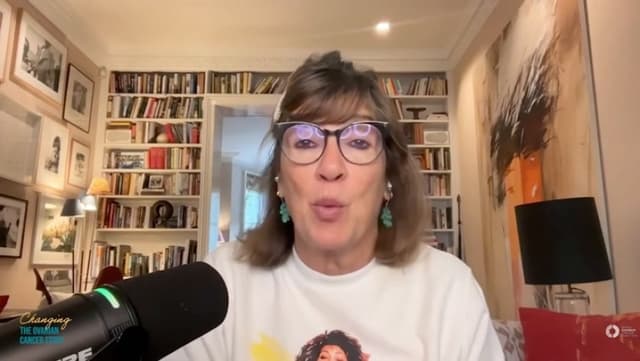


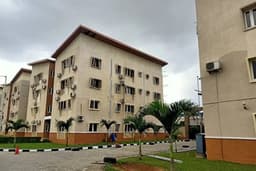


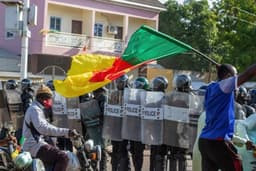
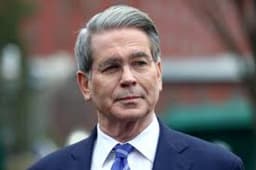



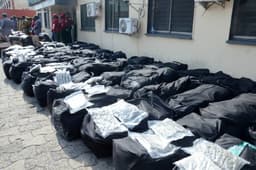
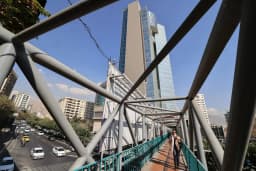

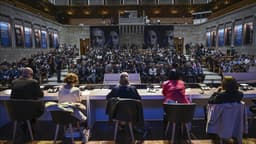

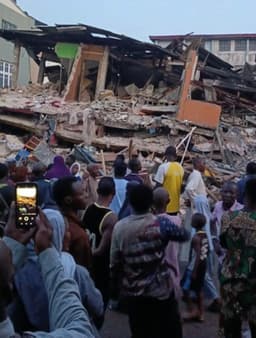







NEWS EXPRESS is Nigeria’s leading online newspaper. Published by Africa’s international award-winning journalist, Mr. Isaac Umunna, NEWS EXPRESS is Nigeria’s first truly professional online daily newspaper. It is published from Lagos, Nigeria’s economic and media hub, and has a provision for occasional special print editions. Thanks to our vast network of sources and dedicated team of professional journalists and contributors spread across Nigeria and overseas, NEWS EXPRESS has become synonymous with newsbreaks and exclusive stories from around the world.